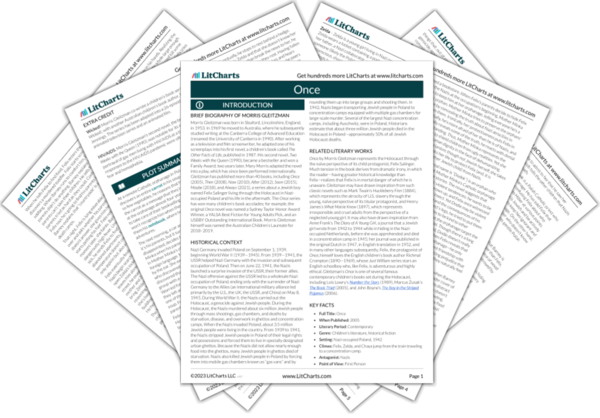Barney argues that no one would have believed him about the “death camps”—that is, the concentration camps that the Nazis built in Poland for the mass murder of Jewish people, such as Auschwitz. This argument suggests that even true stories have limited power to persuade because people refuse to believe things that they don’t want to believe. Barney’s admission that he’s surviving for the sake of the children once again suggests that he has adopted them as his own family. Felix’s wish to die by suicide rather than “feel this bad again” shows how traumatic knowing the truth about evil can be, even when one needs to know the truth.
